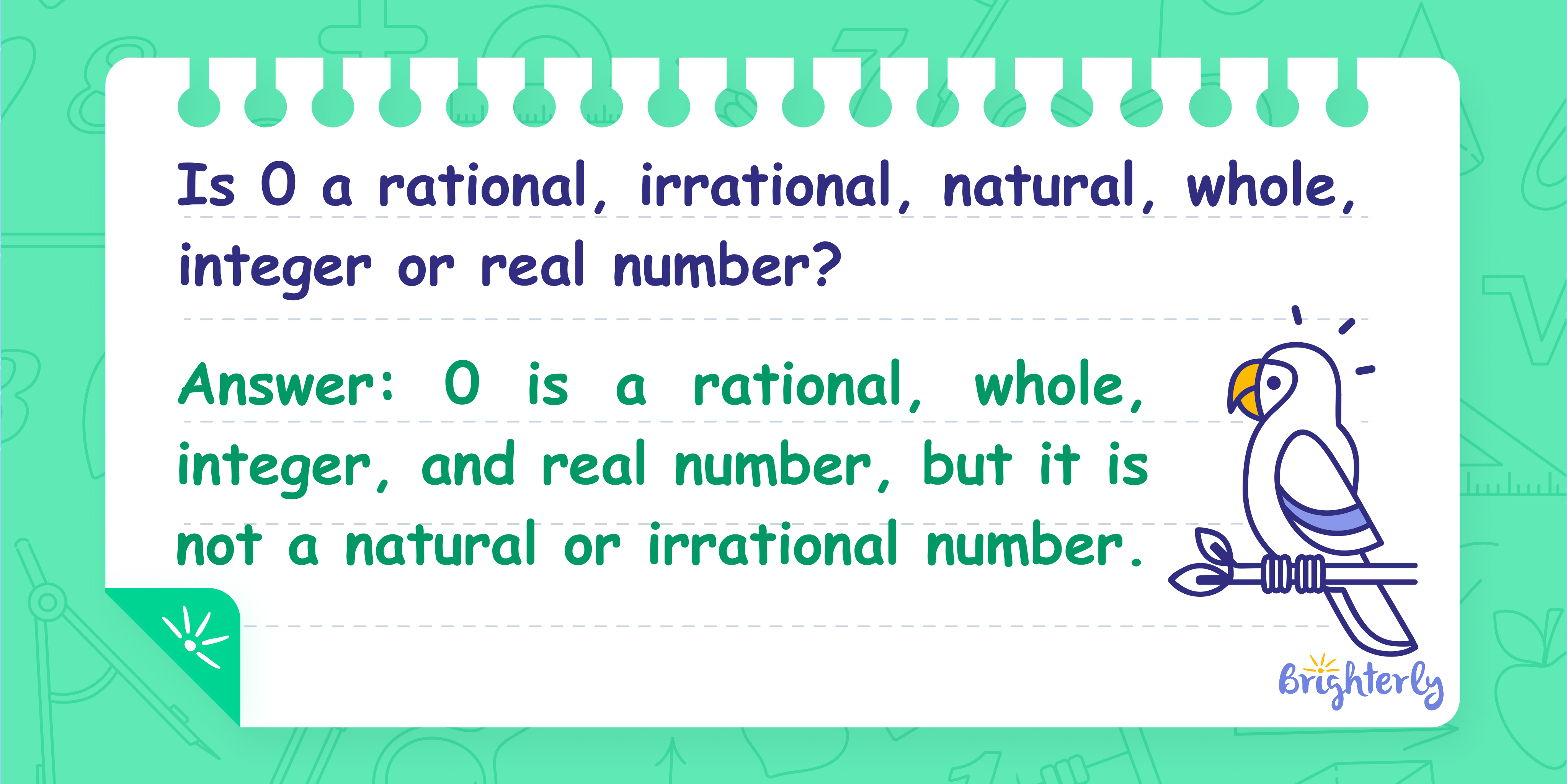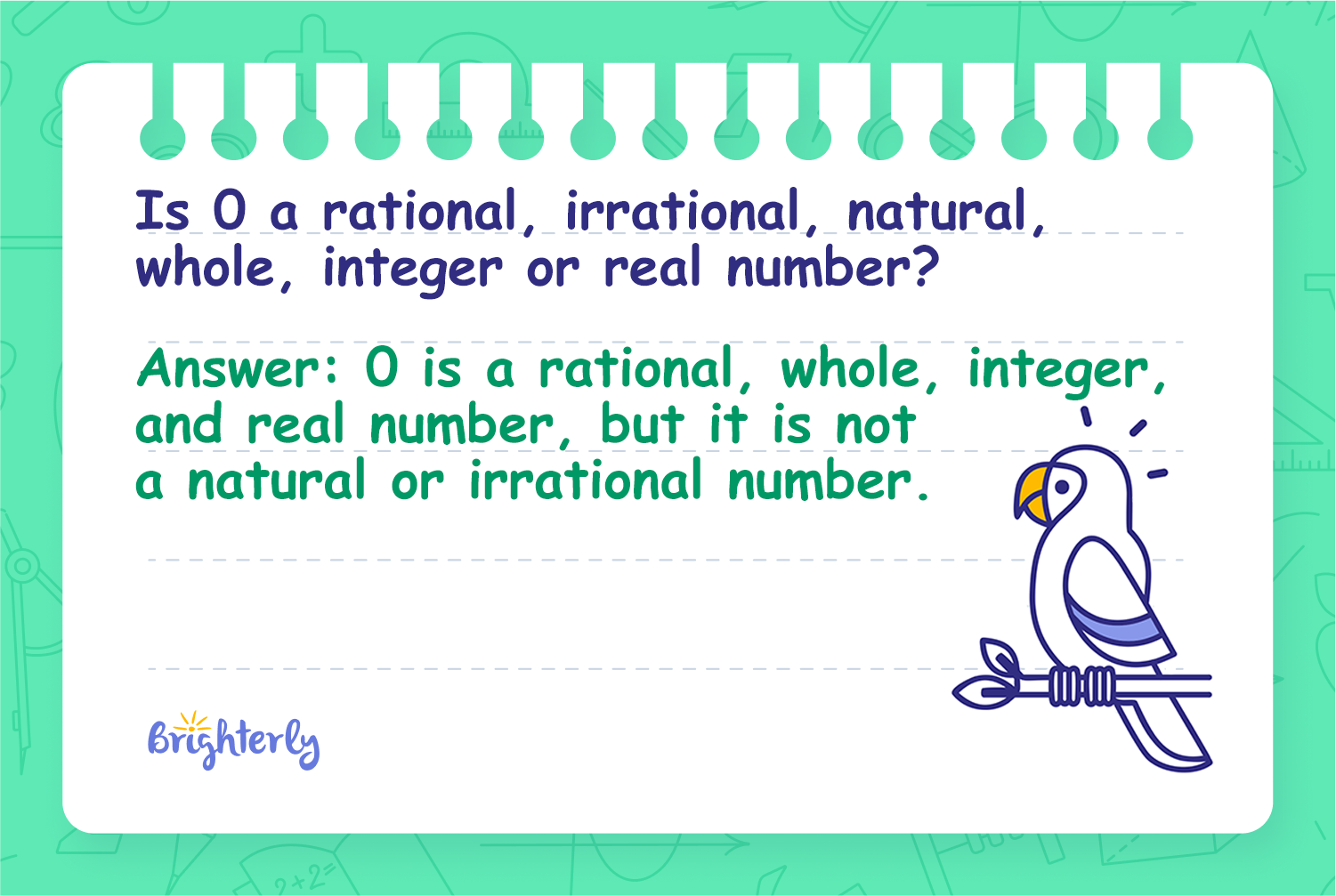
Reviewed by Marvi M. Andres
Is 0 a rational, irrational, natural, whole, integer or real number?
Answer: 0 is a rational, whole, integer, and real number, but it is not a natural or irrational number
Zero is a significant number in mathematics and often raises questions about its classification within different number sets. Understanding where zero fits helps clarify the properties and relationships between natural, whole, integer, rational, irrational, and real numbers. Let’s review each set and determine how zero is categorized.
Methods
Math Tutor Explanation Using Number Set Definitions
This method explains how zero fits into each primary number set by analyzing their definitions.
Step 1: Step 1: Define each number set—natural, whole, integer, rational, irrational, and real numbers
Step 2: Step 2: Compare the properties of zero to the criteria for inclusion in each set
Math Tutor Explanation Using Examples and Counterexamples
By looking at sample members of each set, this method shows whether zero fits, using examples and non-examples for clarity.
Step 1: Step 1: List a few examples of numbers from each set, including zero
Step 2: Step 2: State whether zero shares the necessary properties to belong to the set
Step 1:
Step 2:
Math Tutor suggests: Understanding Types of Numbers
Expand your knowledge about rational, irrational, natural, whole, integer, and real numbers with these related questions.
FAQ on Number Sets and Zero
Is zero a natural number?
Zero is not considered a natural number in most definitions, as natural numbers usually start at 1.
Why is zero a rational number?
Zero is rational because it can be written as a fraction, such as 0/1.
Is zero an integer?
Yes, zero is an integer.
Can zero be classified as an irrational number?
No, zero is not irrational because it can be written as a ratio of integers.
Is zero included in whole numbers?
Yes, zero is the first whole number.


